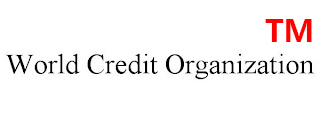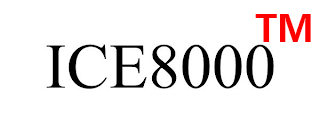Introduction to Integrity Behavior and Award Attribution-World Credit Organization


Introduction to Integrity Behavior and Reward Attribution
1. Standards of Integrity BehaviorThe following content is quoted from "ICE8000 International Credit Standard System Credit Behavior and Reward Attribution Standards":
Integrity conduct means one of the following:
(1) Disclose important facts in good faith.
(1) Abide by laws and regulations in good faith. (Referring to exercising statutory rights in good faith, using statutory powers in good faith, and performing statutory obligations in good faith.)
(2) Disclose important facts in good faith.
(3) Reach the contract in good faith. (Referring to agreeing on obligations in good faith, agreeing on rights in good faith, and agreeing on powers in good faith.)
(4) Abide by the contract in good faith. (Referring to exercising the agreed rights in good faith, using the agreed powers in good faith, and performing the agreed obligations in good faith)
(5) Actively take measures for illegal and invalid contracts. (For example, active measures should be taken for contracts concluded due to major misunderstandings or fraud or coercion by the other party.)
(6) Actively take remedial measures for their own illegal acts and breaches of contract.
(7) Recognize that others have the right to credit evaluation.
(8) Care about credit evaluation opinions of credit institutions, and use legitimate means to obtain or eliminate credit evaluation opinions of credit institutions.
(9) Other acts of good faith or acts in line with the principles of universal human values.
Related terms: The important facts mentioned in this standard refer to the facts that have a significant impact on the legitimate rights and interests of interested parties.
The contract referred to in this standard refers to corresponding documents such as contracts, agreements, statements, commitments, etc. concluded in writing or in other forms.
The remedial measures mentioned in this standard refer to the corrective measures taken for negligence or misconduct, generally including actively compensating for losses, actively making corrections, actively seeking the understanding of the victim, etc., which demonstrate the conscience and goodwill of the perpetrator.
The legal rights referred to in this standard refer to free acts or interests conferred by law.
The legal power referred to in this standard refers to the power to [give or take away rights from others] endowed by law.
The legal obligations referred to in this standard, also known as statutory responsibilities and statutory duties, refer to actions that should be done or prohibited by law.
The term “agreed rights” in this standard refers to the free acts or interests expressly agreed upon by one party or two or more parties through a contract.
The term “agreed power” in this standard refers to the power to [give or seize rights to others] that can be used by one party or two or more parties through a contract.
The contractual obligations mentioned in this standard, also known as statutory responsibilities and statutory responsibilities, refer to what should be done or prohibited by one party or two or more parties through a contract.
The goodwill referred to in this standard refers to actively safeguarding and promoting the legitimate rights and interests of others.
The legitimate rights and interests mentioned in this standard refer to the rights and interests possessed by a person, unit or region that conform to [universal human values], regardless of whether the rights and interests are supported or opposed by [laws and/or customs of a certain space and time].
The universal human value principle mentioned in this standard refers to the value principle that is universally applicable to human beings regardless of time, space, race, religion, belief, etc., such as: the principle of supremacy of human basic rights, the principle of equal The principles of good and evil and rewarding meritorious deeds, the principle of good faith, [principles of fairness, impartiality and openness in the distribution of interests and dispute handling], etc.
II. Attribution of Credit Rewards for Integrity Behavior
Where a natural person engages in honest behavior, credit rewards and actual rewards belong to the natural person. If the unit engages in honest behavior, the credit reward belongs to the unit, its high-level personnel, and the staff who have a direct causal relationship with the honest behavior;
If the act of good faith occurs in a certain area, but the specific perpetrator cannot be found or determined, the credit reward belongs to the area and all the people living in the area. The attribution of actual rewards is determined by the commender. If the commender has not decided, it belongs to the non-profit organization in the area.
If a natural person engages in honest behavior, he is the recipient, and both actual rewards and credit rewards belong to him.
Welcome to reprint, please indicate the source of the reprint World Credit Organization (WCO)


